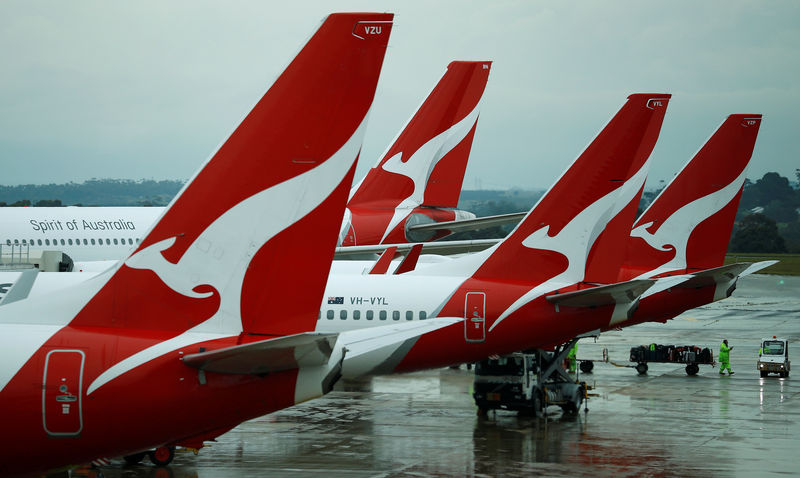SYDNEY (Reuters) - Qantas Airways Ltd (AX:QAN) said on Friday it found structural cracks in three of its Boeing Co (N:BA) 737 NG planes after conducting earlier-than-required checks of its aircraft as part of a global issue with the model.
The cracks are on what is known as the "pickle fork" – a part that attaches the plane's fuselage, or body, to the wing structure.
The three Qantas jets, all of which had around 27,000 take-off and landing cycles, rather than the 30,000 that had required immediate checks, have been removed from service for repair, the airline said in a statement.
"Qantas will minimize any customer impact from having these aircraft temporarily out of service," the carrier said. "All three aircraft are expected to return to service before the end of the year."
Qantas on Wednesday said it had discovered cracks in a jet with just under 27,000 cycles undergoing heavy maintenance.
Airlines had been given a matter of months to check planes with more than 22,600 cycles but fewer than 30,000 as part of a directive from the U.S. Federal Aviation Administration issued last month.
Qantas stepped up checks on 33 of its planes with more than 22,600 cycles, finding cracks in another two.
Repairing the cracks requires grounding the airplane, with remedial work costing an estimated $275,000 per aircraft, according to aviation consultancy IBA.
Other carriers that have discovered pickle fork cracks include Southwest Airlines Co (N:LUV), Brazil's Gol Linhas Aereas Inteligentes SA (SA:GOLL4), Korean Air Lines Co (KS:003490) and Indonesia's Sriwijaya Air.

Boeing said on Thursday of the slightly more than 1,000 planes that had required checks to date, cracks were found in fewer than 5%.